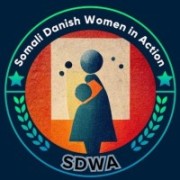The Somali Diaspora: A Lifeline for Somalia’s Recovery
The Somali diaspora, estimated to be over 2 million strong, plays a vital role in supporting Somalia’s recovery efforts. Through remittances, which amount to $1.3-2 billion annually, the diaspora provides a lifeline for many Somali households, helping to meet basic needs like food, healthcare, and education
Contributions to Economic Development
Beyond financial support, the diaspora also contributes to Somalia’s economic development by establishing businesses and creating job opportunities. Their return to Somalia signals increasing confidence in the country’s security situation and economic prospects, bringing valuable skills, money, and international connections.
The Somali Foreign Minister, Amb. Ahmed Moallim Fiqi, emphasized the diaspora’s significant role during a speech at the Somali Diaspora Investment Forum in Mogadishu. He highlighted that the diaspora is not only a lifeline for many families but also a backbone for reviving the Somali economy . The minister stressed the importance of the diaspora’s financial support through remittances and their role in business establishment and job creation.
Successful Projects Led by the Somali Diaspora
The Dutch-financed project on diaspora entrepreneurship in Somaliland has supported diaspora members in kick-starting businesses in their home country, fostering economic growth and job creation. Additionally, the UNDP Qualified Expatriate Somali Technical Support (QUESTS) project has been instrumental in promoting development activities in stable areas, showcasing the diaspora’s positive impact on Somalia’s recovery and reconstruction efforts.
Some of the success stories of the Somali diaspora in contributing to the country’s recovery include:
Effective Support for Relief and Development: The Somali diaspora has been instrumental in supporting relief and development activities in Somalia through their financial contributions and investments, serving as a lifeline for many families in the country.
Economic Growth and Job Creation: Diaspora members have played a significant role in establishing businesses, creating job opportunities, and fostering economic growth in Somalia, showcasing their positive impact on the country’s recovery efforts.
Investment in Infrastructure and Development: The diaspora’s investments and expertise have contributed to the development of various sectors in Somalia, such as healthcare, education, and infrastructure, driving the nation towards prosperity and stability.
Infrastructure Projects Supported by the Somali Diaspora
The Somali diaspora has supported various infrastructure projects in Somalia, contributing to the country’s development and recovery. Some specific infrastructure projects include:
TVET+ Service Hubs: The diaspora, in collaboration with a Norwegian-Somali consortium, has developed a concept to build a network of “TVET+ Service Hubs” in Somalia. These hubs act as vocational training centers, providing integrated services to the business sector and promoting quality and sustainable growth in the country.
Investment in Vocational Training Centers: Projects like the development of the Professor Adow Vocational and Training Centre and Somali Danish Women Action supported SYL Vocational Skill Training Center in Galkayo, Somalia, have been supported by the diaspora. These centers aim to equip young adults with relevant technical skills to address high youth unemployment rates and support economic growth in Somalia.
These infrastructure projects highlight the diaspora’s commitment to enhancing the social and economic infrastructure in Somalia, contributing to the country’s overall development and prosperity.
Humanitarian Assistance from the Somali Diaspora
The Somali diaspora has played a critical role in providing humanitarian assistance to Somalia during complex crises. Remittances, which exceed all humanitarian and development assistance to the country, help many Somali families pay for food, water, education, and basic health services. Diaspora organizations like HIRDA have facilitated 87 assignments in priority sectors like education, infrastructure, governance, and agriculture since 2016.
Challenges and the Way Forward
However, the diaspora’s involvement is not without challenges. The reliance on remittances has been criticized for fostering a culture of dependency and hindering local capacity building. Additionally, limited access to financial institutions and investment opportunities in Somalia make it difficult for the diaspora to engage in more productive economic activities.
Efforts are being made to address these challenges and create a conducive environment for the diaspora to maximize their contribution to Somalia’s recovery and sustainable development. The Somali government is working to create conditions for the diaspora to fully contribute to sustainable development in the country . This includes improving infrastructure and support mechanisms, such as creating more robust financial institutions, implementing policies that support entrepreneurship and job creation, and promoting investment opportunities .
The development of a new National Diaspora Policy, supported by the International Organization for Migration (IOM), aims to strengthen social and economic linkages between Somalia and its diaspora . This policy will also intensify efforts to unify and mobilize Somali diaspora networks for a stronger impact on the country’s development .
Conclusion
In conclusion, the Somali diaspora remains a vital force in supporting Somalia’s recovery, both economically and politically. By continuing to invest in the country’s development, the diaspora can help drive sustainable growth and stability in Somalia.
References
[1]https://www.un.org/africarenewal/web-features/somali-diaspora%E2%80%99s-remittances-cast-lifeline
Moallim Fiqi, A. (2023, April 25). Somali Foreign Minister urges diaspora to boost economy and return expertise. Ministry of Foreign Affairs and International Cooperation of Somalia. Link
Osman, A. (2022). The Role of the Somali Diaspora in Peacebuilding and Statebuilding. Bildhaan: An International Journal of Somali Studies, 22(1), 5.
Orozco, M., & Yansura, J. (2013). Keeping the lifeline open: Remittances and markets in Somalia. Oxfam America Research Backgrounder series.
Majid, N., & Abdirahman, K. (2018). Remittances and Vulnerability in Somalia. Rift Valley Institute.
International Organization for Migration. (2022). Somalia Diaspora Engagement. Link
IOM supports development of new National Diaspora Policy in Somalia. (2022). Link
Somali Diaspora Investment Forum kicks off in Mogadishu – SONNA. (2022). Link
